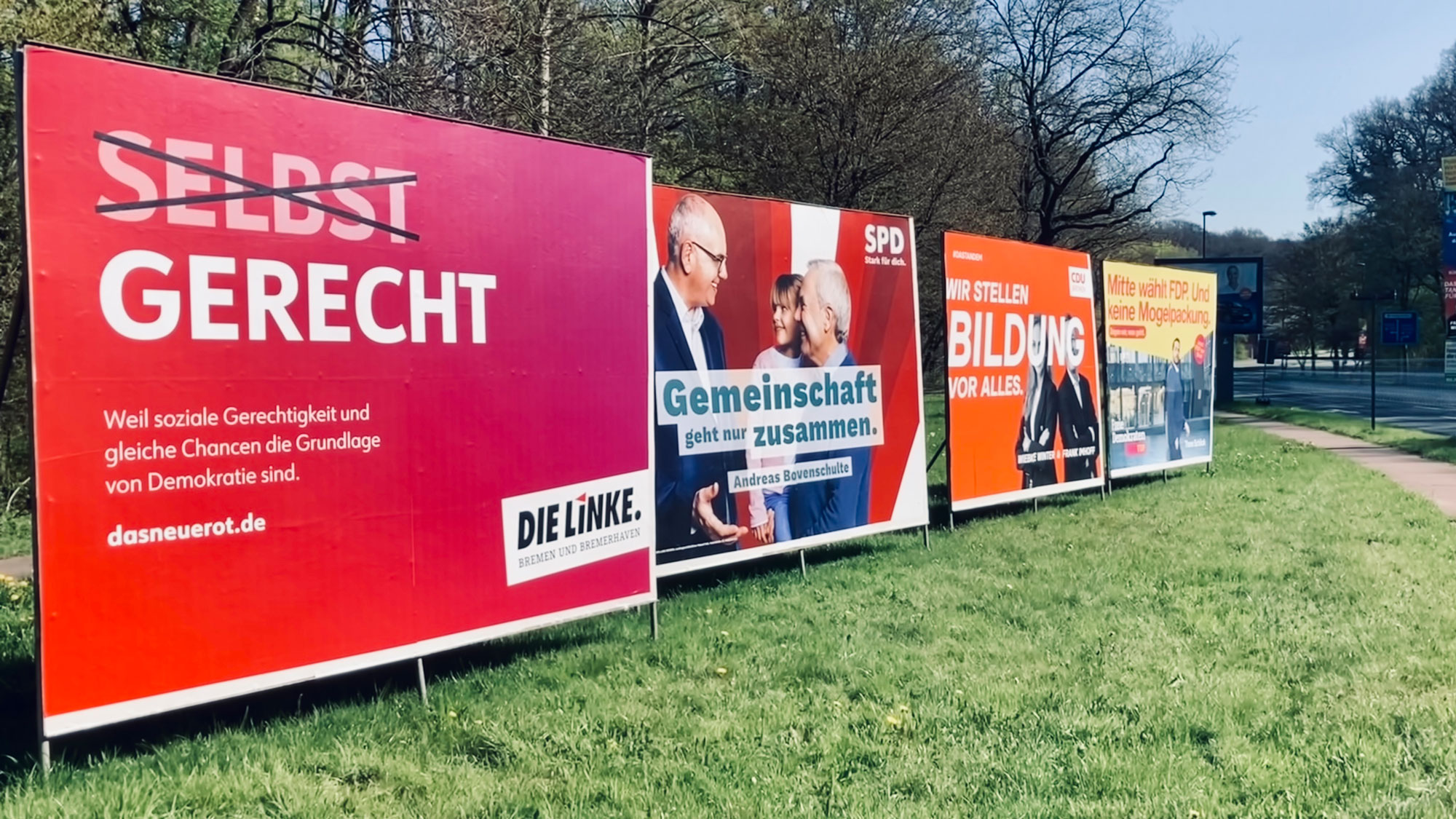
© Sarah Batelka / Universität Bremen
AfD Exclusion: “Bürger in Wut” Could Be the Surreptitious Winner
Political scientist Lothar Probst on the 2023 Bremen state elections
The 2023 Bremen state election will be held on May 14, 2023. Political scientist Professor Lothar Probst explains what issues are central to the election campaign and what impact the COVID-19 pandemic might have.
Mr. Probst, what issues are central to the current election campaign?
One of the key issues in the election campaign is the state’s further development as an industry and business hub. The focus here is on the shortage of skilled workers. Another issue is education policy, which repeatedly makes headlines due to the poor outcomes on educational assessments. In addition, mobility and climate change as well as national security are likely to shape the public debate during the election campaign.
The departing red-green-red coalition had to deal with the COVID-19 crisis for most of its term in office. What impact might the pandemic have on the outcome of the election?
Mayor Andreas Bovenschulte of the SPD has proven himself a hands-on manager of the COVID-19 crisis. This fact should benefit him and his party. Overall, the economic consequences of the pandemic in Bremen were relatively mild, also because the Senate of Bremen provided targeted support to industry, the skilled trades, and cultural institutions by means of the “Bremen Fund for Coping with the Impact of the COVID-19 Pandemic.”
The electoral committee of the state of Bremen excluded the AfD from the election after the party had submitted two electoral lists due to internal disputes. What does this decision mean for the election?
One of surreptitious winner of the exclusion could be the “Bürger in Wut” (Citizens in Rage) voters’ association, which have a similar right-wing populist agenda to that of the AfD. With its focus on “fighting crime” and thanks to financial help provided by the “Bündnis Deutschland” (Alliance Germany) party, it has real chances of securing more than five percent in all of Germany this time around. A post-election rerun ordered by a state court ruling is not entirely out of the question, but it is highly unlikely.
2023 Pre-election assessment
With less than one month before the election, Professor Lothar Probst, retired political scientist from the University of Bremen, together with Julian Okrongli, graduate student of the “Professional Public Decision Making” Master’s program, wrote a pre-election assessment for the 2023 state elections. First, they explain the distinctive features of elections in the state of Bremen and the basic elements of its electoral system. Then, the researcher with a focus on Bremen’s political parties outlines the history of Bremen’s party system, the overall political situation, as well as the financial, economic, and social conditions in the run-up to the election. This is followed by an analysis of the likely election issues and the different parties’ campaign strategies. This pre-election assessment is not to be confused with a pre-election poll. Professor Lothar Probst’s pre-election assessment is available as a PDF document (in German only).